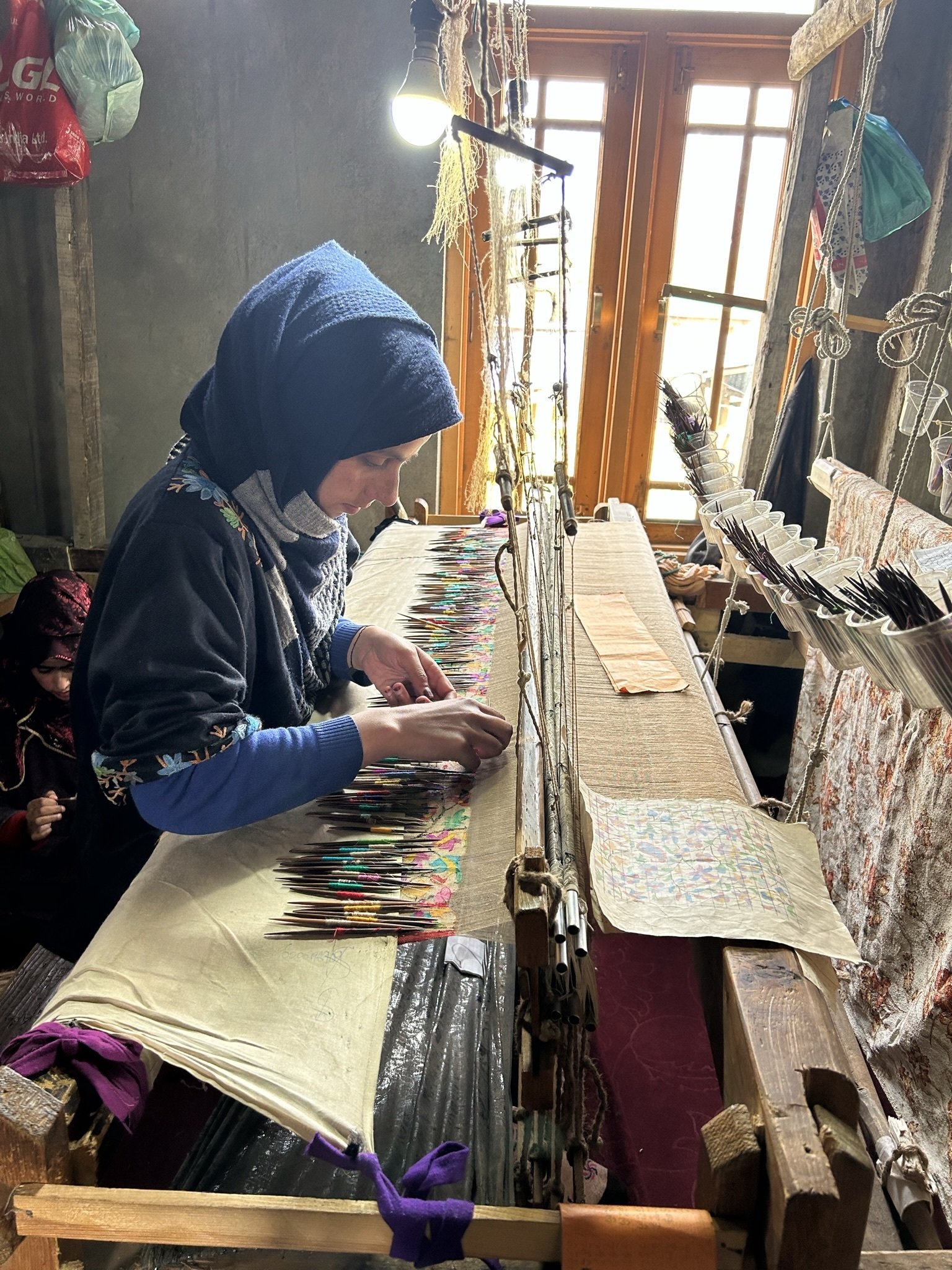Sustainability at Ladakhy – Luxury with a Sustainable Soul
Sustainability is not a mere promise at Ladakhy. Instead, it permeates the very core of our brand. From the pristine highlands of Ladakh to the skilled hands of our artisans, every stitch in the Pashmina journey is firmly grounded in ethical sourcing, responsible technical craft, and environmental consciousness.
In response to the world inching towards conscious luxury, Ladakhy is poised to revolutionise the sustainable fashion landscape through the proper balance of respect for tradition, nature, and people.
Ethical Sourcing: Respecting Nature & Tradition
Sustainability starts from the source. Changthangi goats, native to the high-altitude regions of Ladakh, produce the world’s finest-quality Pashmina wool. Each spring, these goats naturally shed their undercoats, which they collect in summer, an ethically sound, cruelty-free, sustainable act performed by nomadic shepherds.
Unlike cashmere of synthetic origin or other machine-made systems, Ladakhy authenticates itself with the age-old traditions of nomadic herders residing in Ladakh:
- Hand Collected Wool: Harm-free, coercion-free: only the natural shed fibres are used.
- Sustaining Indigenous Communities: We source the wool directly through Ladakh’s nomadic herders to preserve their traditional way of life.
- Preserving Pashmina’s Purity: No synthetic blends, no mass production—only the purest, naturally sourced Pashmina.
This time-honoured, ethical procedure allows us to make authentic heirloom pieces and check over-extraction, thereby preserving the animals’ welfare and that of their ecosystem in the long run.
Slow Fashion: Handwoven, Not Mass-Produced
At Ladakhy, we reject fast fashion model. Slow, conscious craftsmanship is what we respect, which allows gowns made of pure Pashmina, as that monocle of fashion, to be:
- Handwoven by master artisans using traditional techniques handed down for centuries.
- Free of synthetic material – 100% pure handcrafted Pashmina.
- Designed to last a lifetime, not just one season.
Unlike machine-made cashmere, which uses harmful chemicals in the production line, every product from Ladakhy is a masterpiece of patient handiwork and skill intertwined with passion.
Choosing Ladakhy is an investment in timeless, heirloom-quality wear that is not viewed as harmful to the planet.
Empowering Artisans & Ethical Wages
Sustaining the natural environment is not enough. We need to sustain the people.
For centuries, Kashmiri artisans who perfected Pashmina weaving faced exploitation, low wages, and an industry that fell because of mass machine-made imitations.
Ladakhy aims to make a difference by empowering and working with craftsmen directly—mostly women, to ensure:
- Fair Wages: By cutting out the middlemen, we ensure the artisans receive what they rightfully deserve.
- Reliable Livelihood: Every Ladakhy purchase enables artisans and their families to engage in sustainable income.
- Preserving a 600-Year-Old Tradition: We strive to keep the ancient craft alive through demand for handwoven Pashmina.
Wearing Ladakhy Pashmina is more than just living opulent; it also means supporting the true artisans, their families, and their communities.
Sustainable Packaging: Luxury with a Minimal Footprint
At Ladakhy, sustainability is much more than the product itself. Our packaging tells a story of our commitment to the environment while remaining luxurious.
- 100% Recyclable and Biodegradable Materials: Eco-snobbery to reduce waste.
- Minimalistic, Plastic-free Designs: Timeless elegance without a hint of unnecessary plastic.
- Sustainably Sourced, Yet Luxurious: Luxurious unwrapping with a responsible touch.
Every Ladakhy package is a piece of art, well crafted but never at the expense of the earth.
Wear the Future of Sustainable Luxury
Sustainability and luxury are no longer oppositional concepts; they go hand in hand. True elegance should be loving towards the environment, kind, responsible, and sustainable.
Each Ladakhy speaks for the belief that fashion can be luxurious with a sense of ethical responsibility, and a tradition of honouring the environment and the artisans who bring it to life.
